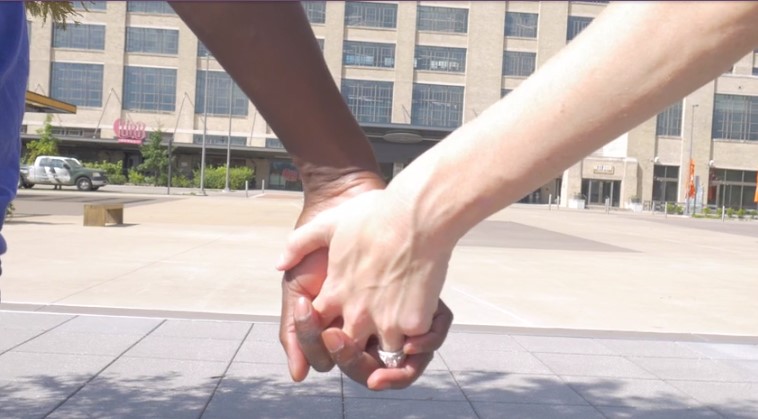MEMPHIS, Tenn. — As racial unrest takes over and seeps through our everyday lives, it becomes even more important for interracial couples to have intimate race-related conversations.
WREG’s Symone Woolridge sat down with several couples who shared their experiences in a time where some relationships are challenged. Couples can sometimes laugh out of discomfort, but racism isn’t a joke.
“People assume I’m like, the helper. It’s just stuff like that,” Emmanuel Amido said.
Four couples, four different stories, but one common denominator.
John Townsley has only dated black women. Like many, his choice of dating outside of his race wasn’t accepted by loved ones. For him, it was his mother.
“My mom was from Germany, and she always seemed a little racist to me,” Townsley said. “As soon as she looked at my daughter’s face she bursted out crying and said, ‘Oh my God, I`m an idiot,” he said.
Emmanuel and Jennifer Amido have been married nine years. Emmanuel was born in South Sudan, where tribes are more important than skin color.
His wife Jennifer said her family struggled with her dating a black man, some even only acknowledging him by the color of his skin.
“They were just like, ‘Think about how your children are going to get made fun of, or think about how this is going to affect your children for the rest of their life, almost as if it was a sin,” Jennifer said.
“I’m not a very dangerous person, don’t have a record, never been to jail,” Emmanuel said.
As a couple with three children, these kind of conversations are hard to escape, even from strangers. People regularly ask the Amidos if their children are adopted.
One biracial woman who didn’t want to be identified out of fear said she identifies as Hispanic and is married to a white man. She said her father-in-law is a local police officer, and he has made plenty of racially offensive remarks about those in the community he serves, and even his own grandson.
“My father in law made a comment like, ‘I can’t believe how blonde he is, how light he is. And when you put him in school like you`re going to put him down as white, right?’” the woman said.
That’s a struggle many who are biracial have — feeling forced to choose which side they’re on.
Anna Joy Tamayo learned that from her biracial sister, who was adopted by Tamayo’s white parents.
“My sister will still tell you today that she always felt like the odd one out, like she didn’t fit in,” Tamayo said. “I never realized that growing up … as I’ve grown, I’ve realized that there’s so much more that goes into it, and my sister needed to have been able to keep her culture, and that wasn’t really encouraged.”
Although these couples never met, they have the same vision — that one day, we will not have to have this conversation again.


















